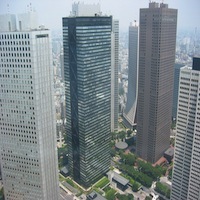Methods, Techniques and Policies for Mobility in the Friendly City
Abstract
The environmental subject, as well known, greatly affects the planning and management of land and city.
If probably it is incorrect and dangerous to deal with “sustainable development” (for the expectations that this expression produces as regards the real compatibility of the uses of development with the observance of environmental standards), in any case there should always be cultural behaviors and operating practices having respect for environment.
The concept of “friendly city” is valuable because it contains also the demand for a reasonable behavior in relation to resources.
The theme is strictly combined with the subject of mobility, for which, if it is faced with adequate models, there are already effective methods, techniques and policies available.
There are several and complex urban and land planning applications of mobility.
It is enough to consider the ones (a great deal!) directly connected with demand and supply of passengers and goods travel; the ones related to the important mechanisms of functions localization and their interrelation; the environmental ones produced by people and goods transport as well as by the allocation and deriving cause/effect comparisons; the landscape ones issuing from the physical intrusion of means of transport and the consequent perceptive effects.
It is, indeed, in the relationships with environment and landscape that the question of mobility shows its great weight as factor of urban quality.
Starting from the above premise, this paper describes an original author’s argument on some of the main issues faced by the supporters and detractors of the principle of sustainability, which leads to the new concept of friendly city.
The said argument, based on the integration among land, mobility and environment, is consciously addressed to highlight the fundamental elements for the re-establishment of the urban, land planning and transportation disciplines as well as to lead the urban quality of life to levels no attainable otherwise.
The first part of the paper deals with the conceptual correctness of the principle of sustainability and its applications.
The second part investigates the most consistent and reasonable modalities of travel, such as the pedestrian one, reaffirming that the modern city has failed whenever it has been planned for the individual vehicle mobility.
The third part aims at briefly defining the actions of an innovating approach to mobility in urban field.
The fourth part, finally, points out the operating and practical consequences.
Downloads

Copyright (c) 2014 Tema. Journal of Land Use, Mobility and Environment

This work is licensed under a Creative Commons Attribution 4.0 International License.
Authors who publish in this journal agree to the following:
1. Authors retain the rights to their work and give in to the journal the right of first publication of the work simultaneously licensed under a Creative Commons License - Attribution that allows others to share the work indicating the authorship and the initial publication in this journal.
2. Authors can adhere to other agreements of non-exclusive license for the distribution of the published version of the work (ex. To deposit it in an institutional repository or to publish it in a monography), provided to indicate that the document was first published in this journal.
3. Authors can distribute their work online (ex. In institutional repositories or in their website) prior to and during the submission process, as it can lead to productive exchanges and it can increase the quotations of the published work (See The Effect of Open Access)
